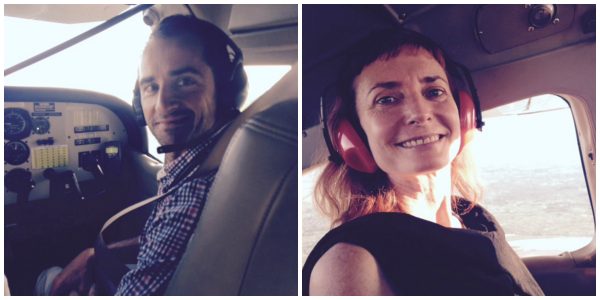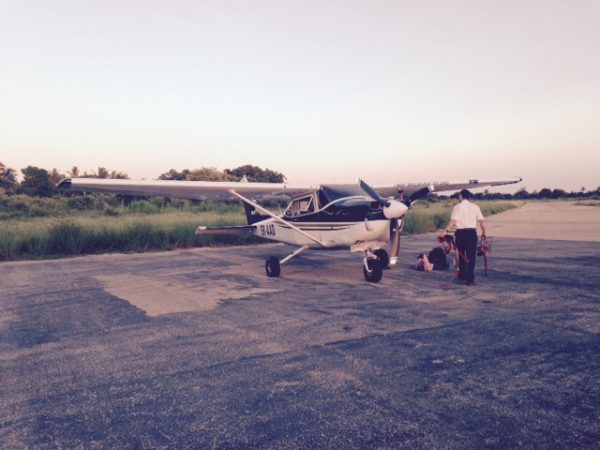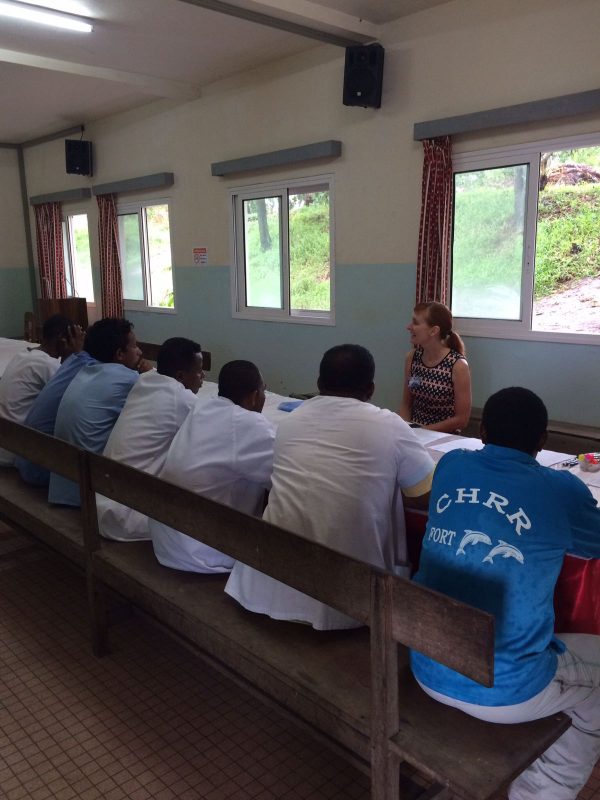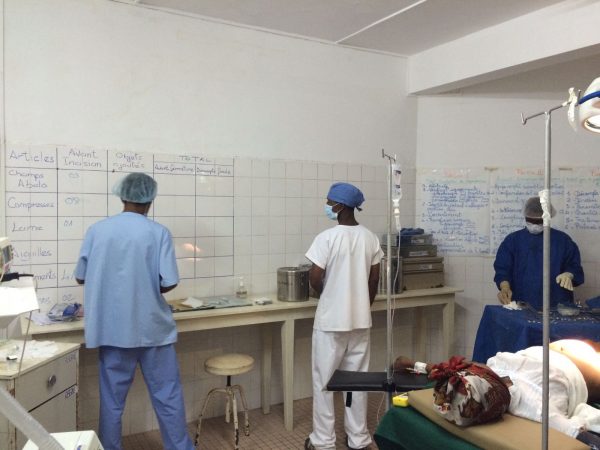Oximeters keep beeping in Madagascar
We’ve been privileged to support incredible teams across the country since 2015, when we joined the world’s largest floating NGO hospital, Mercy Ships on a visit inland to deliver WHO Checklist training – alongside Lifebox pulse oximeter distribution and training.
We’re excited to hear that the oximeter at Maintirano, one of 100 donated by our longstanding partner Mercy Ships, is still beeping the sound of patient safety across the country.
So are many others – with the training making a long-term, life-saving difference.
“One and two years on, the surgical teams consistently identified three essential benefits from the initial training: the improvement that Lifebox had brought to patient monitoring and safety, correct timing for administration of antibiotics, and correctly protocolised instrument/swab counting.”
Jim Callahan (logistics and translation) and Vanessa Andean (anaesthetist), recently travelled back to Madagascar to meet with local teams and learn more about their ongoing commitment to safer surgery, and sent us an update from the road.

“Having participated in Mercy Ships’ Surgical Safety Checklist and Lifebox training rolled out during 2015 and 2016 across Madagascar, I had the opportunity to return to the island nation to conduct follow-up.
We have spent the last weeks 2 charting northern Madagascar in a Cessna 182 with partner organisation Mission Aviation Fellowship, visiting regional hospitals, some in a post-cyclone state after the passage of Enawo. A lot of flooding is evident, but happily not too much damage to houses. Flying in a light plane with a rising sun, at low altitude over a breathtaking landscape is a fabulous way to travel, particularly when the alternative is Madagascar’s torturous roads.

Each hospital follow-up session elicits a different response. Some surgical teams receptive and others less so, reflective of the different dynamic and personalities in each institution – and according to our Malagasy doctor, the cultural differences between Malagasies from different regions.

The follow-up sessions have revealed some interesting findings. Principally, that of the Lifebox pulse oximeters donated during training one and two years ago, all are in robust health and being used more or less daily. It was encouraging to see their use in theatre too, with units correctly calibrated, sound on, and Sp02 alarms set, for the most part, at correct levels. No hospital reported any issues with the devices to date. The only request was, unsurprisingly, for additional units, for recovery, maternity, and in larger hospitals, ICU/emergency.

On occasions we’ve landed on unfenced open fields, and the underside of the Cessna is left with a veneer of Zebu (local cow) dung sprayed along its belly. We were collected by the hospital director in the ambulance, a well-used troop carrier using an Australian-made 2-way radio and external antenna. The transfer to the hospital included a river crossing and roads consumed by mud. It was a challenge to stay in our seats, you certainly wouldn’t want to be a patient on a stretcher on these roads.”
Read more from Jim and Vanessa over at Mercy Ships Australia here – week 1 and week 2.
And donate here, to help us make a difference to more colleagues, striving to help those patients at the end of so many long roads.

